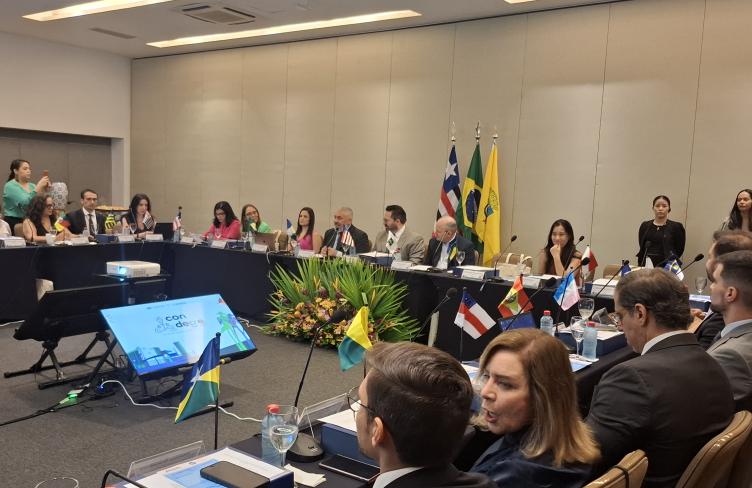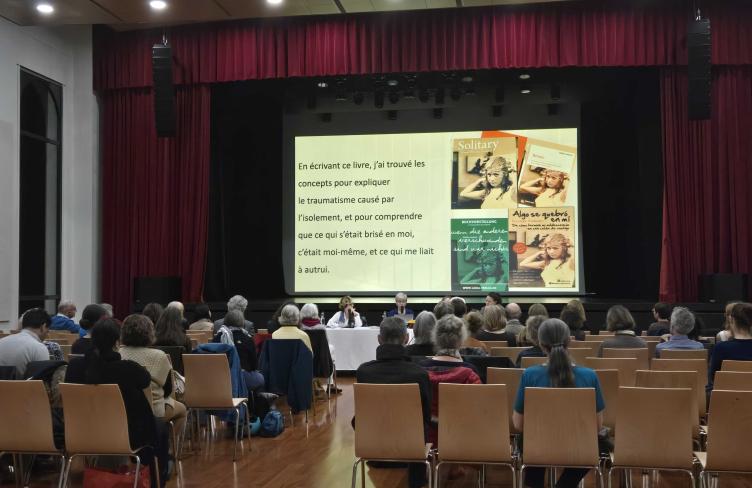
The APT, together with Anti-Torture Initiative (ATI) and the Norwegian Center for Human Rights (NCHR) launched in 2018 a three-year process to develop a set of guidelines on investigative interviewing by law-enforcement officials and on the implementation of associated legal and procedural safeguards. These guidelines aim to reduce the well-documented risk of mistreatment and coercion that persons face during questioning by law enforcement, and during the first hours of custody.
Why are the Guidelines Being Developed?
The anticipated guidelines are intended to provide practical guidance to law-enforcement on the conduct of effective, ethical, and non-coercive interviews. At the same time they will promote the effective implementation of legal and procedural safeguards, associated with questioning. In this way, the guidelines will be an important tool for ensuring that persons questioned for investigative purposes are not subjected to torture or other forms of ill-treatment.
By championing interviewing and investigation practices centered on the principles of the presumption of innocence and the pursuit of truth, and by facilitating the implementation of essential legal safeguards, the guidelines will help prevent miscarriages of justice, foster trust in public institutions, and promote the rule of law.
How Are the Guidelines Being Developed?
Following broad public consultations and strategy meetings between a wide array of stakeholders, the APT, ATI, and NCHR have formed a tripartite institutional partnership to coordinate the development of this set of guidelines (Coordination Group).
A Steering Committee comprised of 15 technical experts from varied disciplines, backgrounds, and origins, was then established to oversee the development of the guidelines. Their work is complemented by a Drafting Group and an Advisory Council, with the support of the Coordination Group. The Steering Committee and the Coordination Group held their first in-person meeting in Rio de Janeiro in May 2018 where they adopted its plan of work, advanced towards the constitution of a Drafting Group and an Advisory Council, and outlined the envisioned framework of the Guidelines. In September 2018, the Drafting Group met for the first time in Geneva where they agreed on a structure for the Guidelines and a division of work between the drafters. Subsequently, a first draft was produced and discussed by the Steering Committee during its second in-person meeting in Tunis in December 2018. The Drafting Group met for a second time to advance on the draft Guidelines in April 2019 in Oslo. In September 2019, the Steering Committee and the Drafting Group met jointly to discuss the latest version of the draft Guidelines in Bangkok. The drafting of the Guidelines is currently on-going. A final meeting of the Steering Committee to approve the final draft is expected to take place in June 2020.
Timeline
The process is expected to last at least until the year 2020, and to culminate in a large-scale, multi-stakeholder Symposium dedicated to reviewing and endorsing the draft guidelines.
Guiding Principles
This process foremost adopts a human rights-based approach, and is based on the principles of transparency, accountability, non-discrimination, empowerment, and broad inclusiveness.
Opportunities for Involvement and Contact
Throughout the process, the Coordination Group welcomes your support and your questions and comments, including information about ongoing related initiatives and events.
- Andra Nicolescu – Advocacy and Legal Advisor, APT (anicolescu@apt.ch)
- Anne Lardy – Legal and Detention Advisor, APT
- Gisle Kvanvig – Director ASEAN/Vietnam, NCHR (gisle.kvanvig@nchr.uio.no)
- Vanessa Drummond – Assistant Project Director, ATI (vdrummon@wcl.american.edu)


